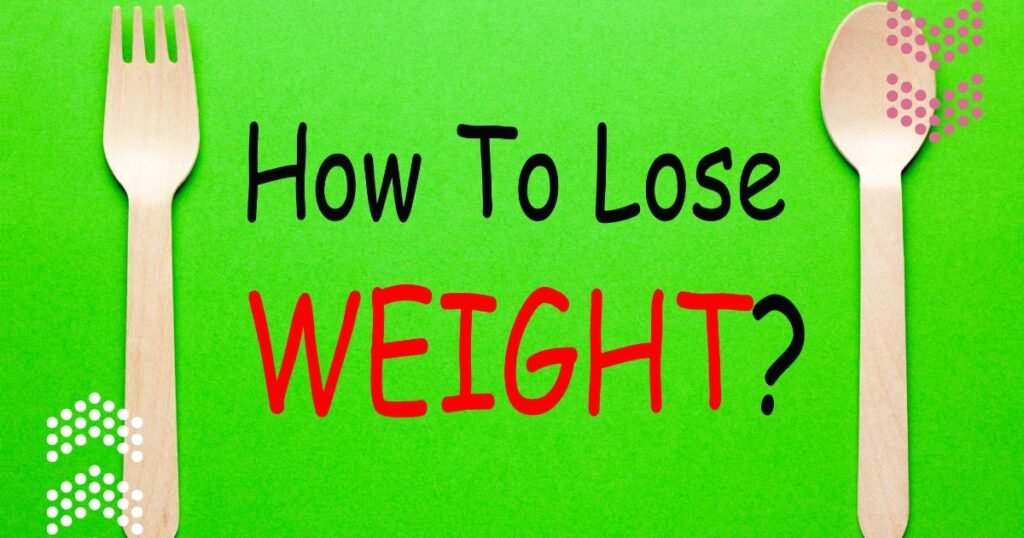Are you a woman who has been struggling to lose weight? You’re not alone! Women often face a unique set of challenges when it comes to weight loss, and understanding these can be a key factor in achieving long-term success.
Women’s bodies are designed differently from men’s, and a variety of biological and societal factors contribute to the obstacles many women face in losing weight. From hormonal fluctuations to societal pressures, the journey to becoming fit and healthy can be more complex for women.
It’s essential to recognize that weight loss is not just about looking good, but about feeling good and maintaining overall health. This is where ShapioX comes into play, offering a women-only weight loss program with resources specifically tailored to meet the diverse needs of women.
ShapioX also provides an online shop, fitness recipes, calculators, and a blog with a wealth of information for women of all ages. Throughout this post, we’ll explore key factors that affect women’s ability to lose weight, and along the way, we’ll share some strategies that can help you navigate these challenges.
1. Metabolism Differences
Women generally have a lower metabolic rate than men, which means they burn fewer calories at rest. Men tend to have more lean muscle mass, and muscle burns more calories than fat, even when the body is at rest.
This biological difference makes it harder for women to lose weight compared to men. For women, it’s crucial to focus on maintaining or increasing muscle mass through strength training, which can help boost metabolism and support weight loss goals.
Another factor to consider is the role of metabolism in weight maintenance. After losing weight, women may experience metabolic adaptation, where the body becomes more efficient at conserving energy, making it harder to keep weight off.
This is why it’s essential for women to adopt sustainable weight loss habits, such as eating nutrient-dense foods and engaging in regular physical activity, to prevent weight regain.
2. The Impact of Pregnancy
Pregnancy is another factor that can affect weight loss for women. Weight gained during pregnancy can be difficult to shed, particularly for women who were already overweight before becoming pregnant.
Postpartum recovery is essential, and women should focus on gradual and sustainable weight loss. Excessive weight gain during pregnancy can lead to complications like preeclampsia, high blood pressure, and other health issues. Maintaining a healthy diet and staying active during pregnancy can make the weight loss journey easier afterward.
Additionally, breastfeeding can play a role in weight loss post-pregnancy. Breastfeeding burns extra calories, which may help some women lose weight more easily after childbirth. However, it’s important to approach postpartum weight loss with care, as rapid weight loss can negatively impact milk production and overall health.
Women should prioritize balanced nutrition and gentle physical activity, gradually increasing intensity as their bodies recover from childbirth.
3. Menopause and Weight Gain
As women age and enter menopause, weight gain becomes more common due to hormonal changes. Estrogen levels drop, which can cause fat to redistribute to the abdominal area. This shift in body composition can make weight loss more challenging. Additionally, a slower metabolism during and after menopause means women must be even more mindful of their calorie intake and exercise habits to prevent weight gain.
Menopause also brings other symptoms like night sweats, mood changes, and sleep disturbances, which can further complicate weight loss efforts. Poor sleep can disrupt hunger hormones like ghrelin and leptin, making it more difficult to control appetite and cravings.
Women going through menopause should consider incorporating relaxation techniques, like yoga or meditation, into their routines to help manage these symptoms and improve their chances of successful weight loss.
4. Muscle Mass and Metabolism
Muscle mass plays a vital role in weight loss. Since men generally have more muscle, they burn more calories throughout the day. Women, on the other hand, need to work harder to build and maintain muscle, especially as they age.
Incorporating resistance training into your fitness routine is one of the best ways to increase muscle mass, boost metabolism, and support long-term weight loss.
For women, strength training not only helps with weight loss but also improves bone density, which is particularly important as women are at higher risk for osteoporosis as they age. Strength training can include exercises such as weight lifting, bodyweight exercises (like squats and lunges), or resistance band workouts.
It’s important to remember that building muscle takes time, so consistency is key to seeing long-term results.
5. Mental Health and Weight Loss
Mental health is another important factor in weight loss, particularly for women. Issues like depression, anxiety, and stress can hinder weight loss efforts. Emotional eating is a common response to stress, and it can sabotage weight loss goals.
To combat this, consider incorporating stress-relief activities like yoga, meditation, or even a walk outdoors. These activities not only improve mental well-being but also support physical health.
In addition to stress management, addressing mental health issues like depression is crucial for successful weight loss. Women experiencing symptoms of depression or anxiety may find it difficult to stick to a consistent exercise routine or make healthy food choices.
Seeking support from a mental health professional, in conjunction with a weight loss plan, can make a significant difference in achieving long-term success.
6. Hormonal Changes
Hormonal imbalances can significantly affect weight loss. For women, hormonal fluctuations occur regularly due to menstruation, pregnancy, and menopause. Estrogen and progesterone levels can impact hunger, metabolism, and where fat is stored.
Women experiencing hormonal imbalances should consult with a healthcare provider to determine the best course of action for managing these fluctuations and supporting weight loss efforts.
In addition to the major life stages of menstruation and menopause, other conditions like polycystic ovary syndrome (PCOS) can also affect weight. Women with PCOS may have higher levels of androgens (male hormones), insulin resistance, and difficulty losing weight.
Women with these conditions should focus on managing their symptoms with the guidance of a healthcare provider, incorporating dietary changes and physical activity that support hormonal balance.
7. Weight Loss is Harder for Some Women
It’s important to recognize that weight loss is not a one-size-fits-all journey. Some women may find it harder to lose weight due to a variety of factors, including genetics, lifestyle, and hormonal changes. That’s why personalized approaches, like those offered by ShapioX, can be so effective.
By understanding your unique needs and challenges, you can create a weight loss plan that works for you.
8. The Role of Hormones in Weight Loss
Hormones play a crucial role in how easily women can lose weight. For instance, high levels of the hormone ghrelin can increase hunger and decrease calorie burn. Additionally, stress hormones like cortisol can make it harder to lose weight, as they encourage the body to store fat, particularly in the abdominal area.
Managing stress is an essential part of weight loss for women.
Women who experience significant hormonal imbalances, such as those with thyroid conditions, should seek medical advice to properly manage their condition. Proper hormone regulation, combined with a healthy diet and exercise, can help counteract the negative effects of hormone imbalances on weight loss efforts.
9. Gender Differences in Food Preferences
Women tend to prefer healthier food options than men, but this doesn’t necessarily mean they will lose weight more easily. Women may also be more prone to emotional or restrictive eating patterns, which can make it harder to maintain a balanced diet.
It’s essential for women to develop a healthy relationship with food, focusing on moderation and mindful eating to support long-term weight loss.
Women also need to be aware of the potential pitfalls of fad diets, which often promise rapid weight loss but can be harmful to health in the long term. Instead, women should focus on sustainable dietary changes, like following a balanced, whole-food diet that provides all the necessary nutrients without cutting out entire food groups.
Building a healthy relationship with food is a key factor in achieving and maintaining weight loss success.
10. Age-Related Muscle Loss
As women age, they naturally lose muscle mass, a condition known as sarcopenia. This loss of muscle slows down metabolism, making it harder to lose weight. Regular strength training exercises, such as weight lifting or bodyweight exercises, are crucial for maintaining muscle mass and a healthy metabolism.
Women should focus on incorporating resistance training into their workout routine to combat muscle loss and support weight loss goals.
In addition to strength training, women should also prioritize getting enough protein in their diet to support muscle maintenance and recovery. Protein is the building block of muscle, and consuming adequate amounts can help prevent muscle loss as women age.
A well-rounded diet that includes lean protein sources, such as chicken, fish, tofu, or legumes, can aid in weight loss and promote overall health.
Understanding the challenges that women face when it comes to weight loss is the first step in overcoming them. With the right approach, women of all ages can achieve their weight loss goals and maintain a healthy lifestyle.
ShapioX is here to support you every step of the way with resources designed specifically for women, from recipes and fitness programs to helpful calculators and expert advice.
To learn more about women’s weight loss and find additional resources to support your journey, check out ShapioX’s website. With the right tools and knowledge, every woman can achieve her weight loss goals, and ShapioX is committed to helping you along the way.
In conclusion, while women may face more challenges when it comes to losing weight, it’s entirely possible to achieve lasting results with the right support and strategies.
Don’t hesitate to explore our resources, shop, and blog to discover more ways to take charge of your health and achieve the body you desire.


